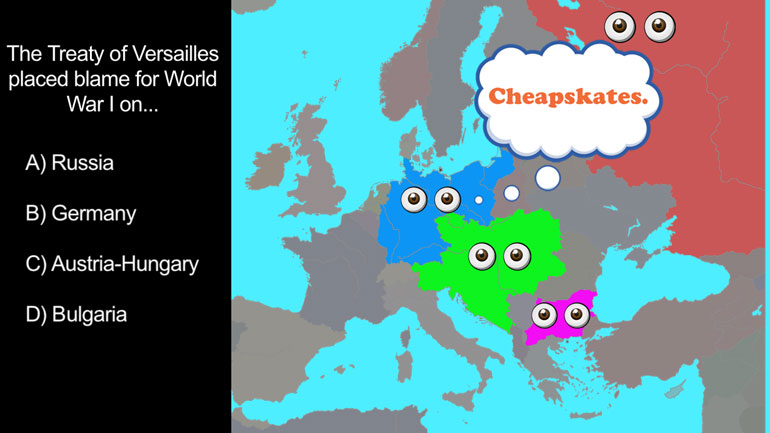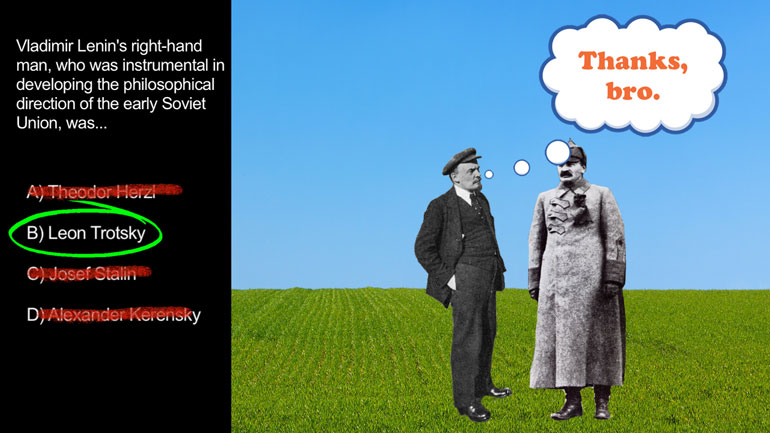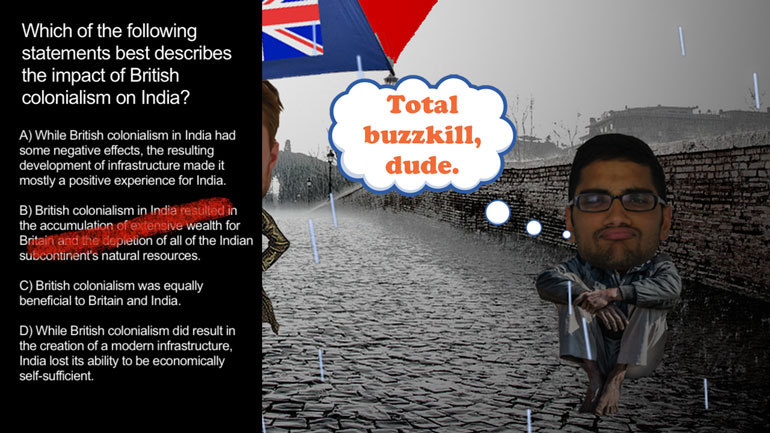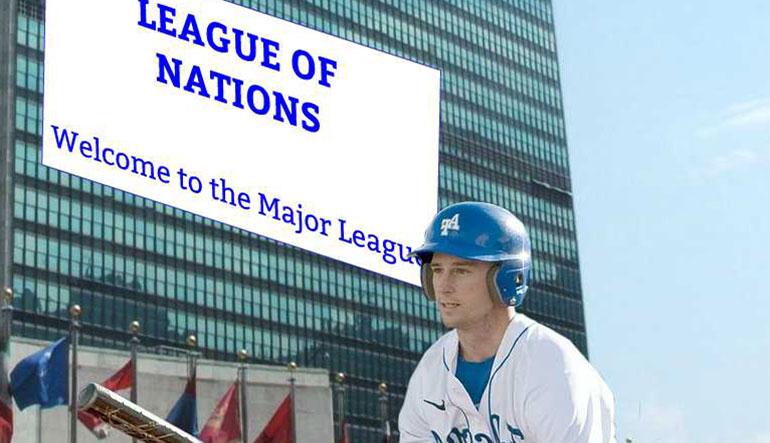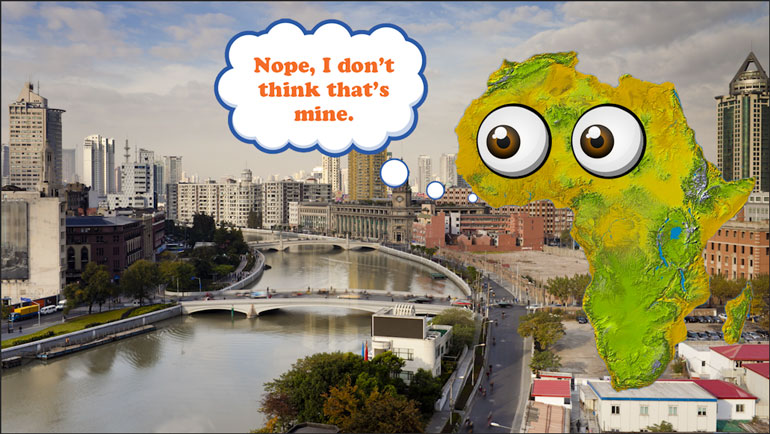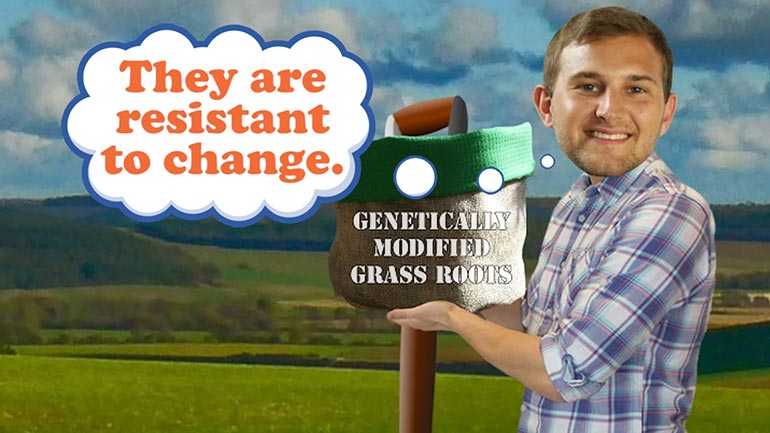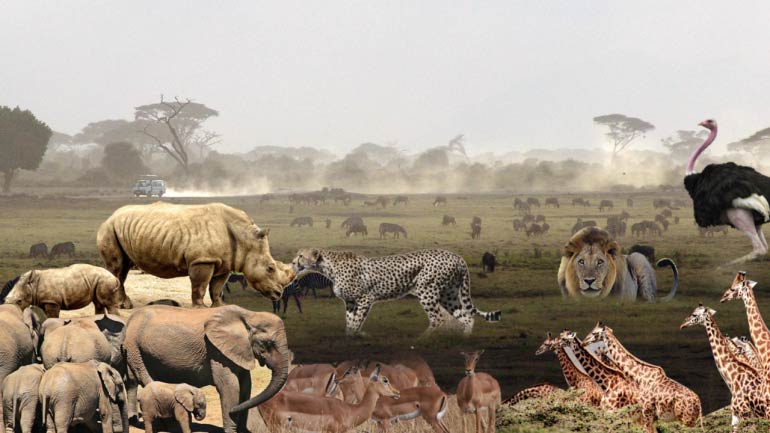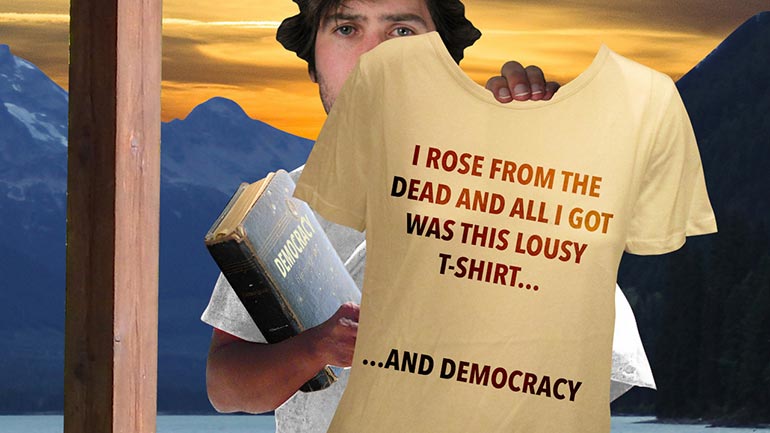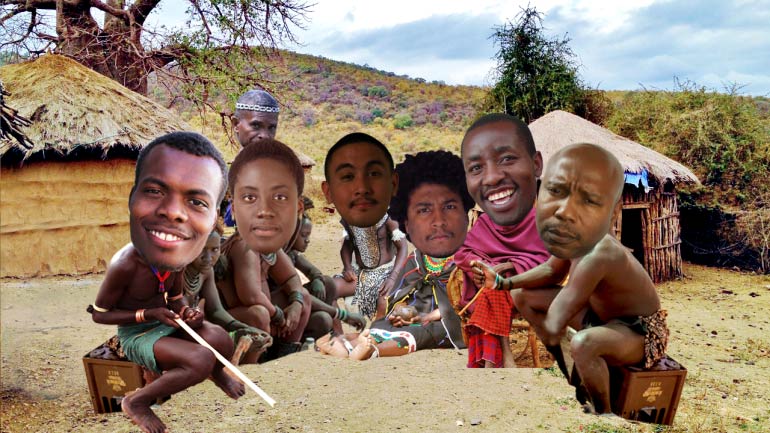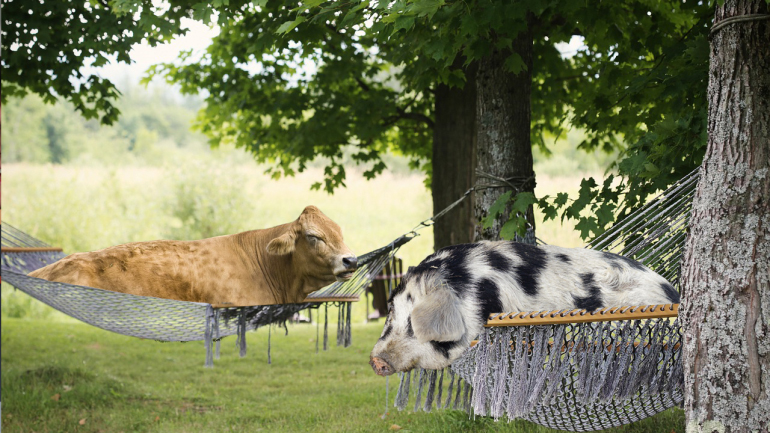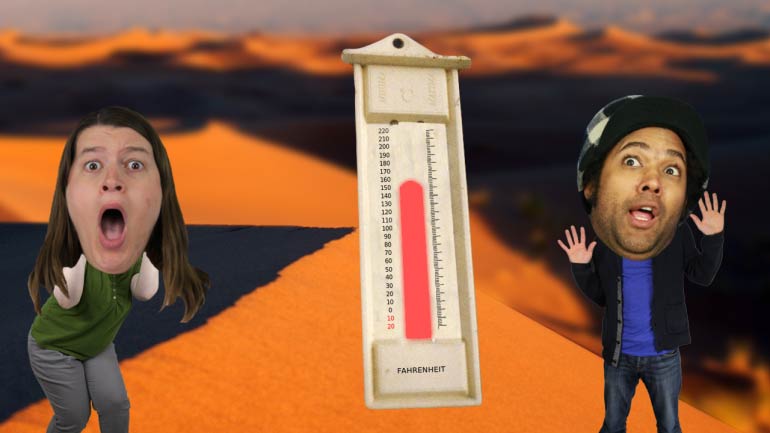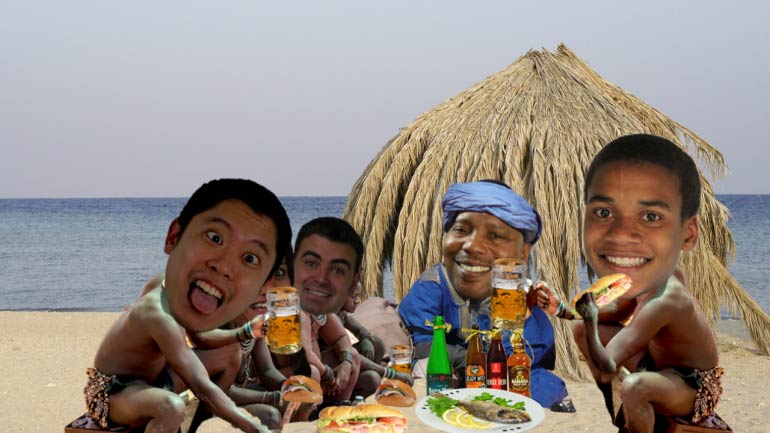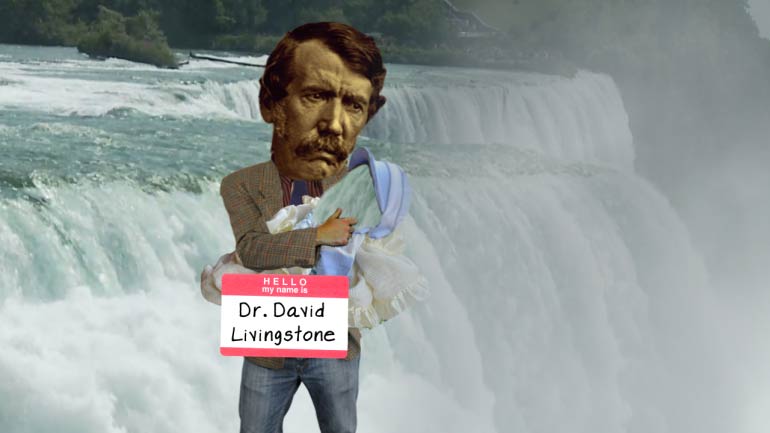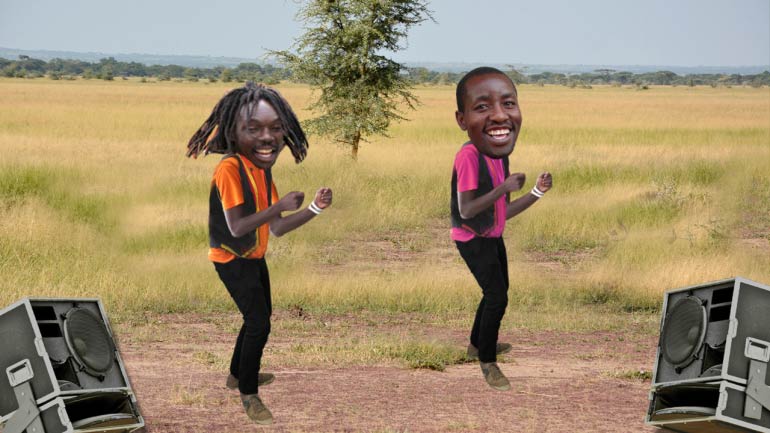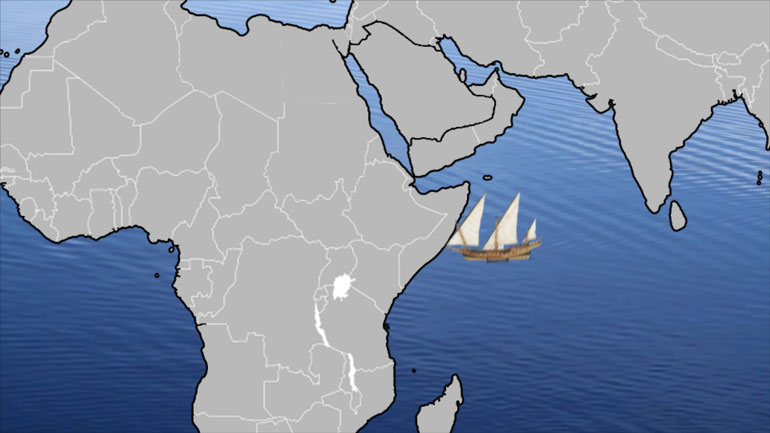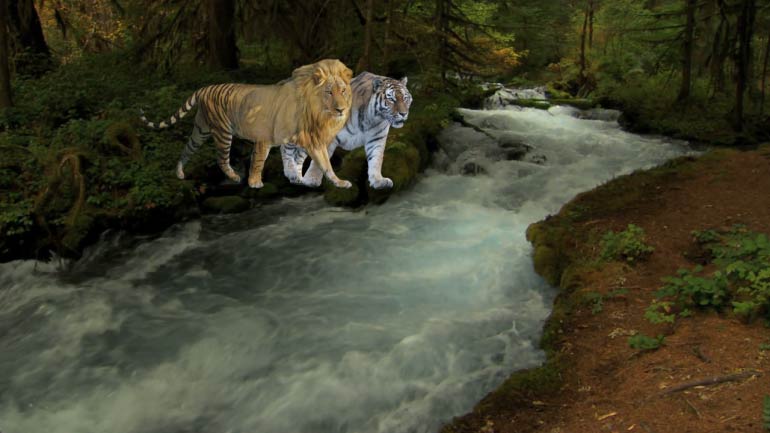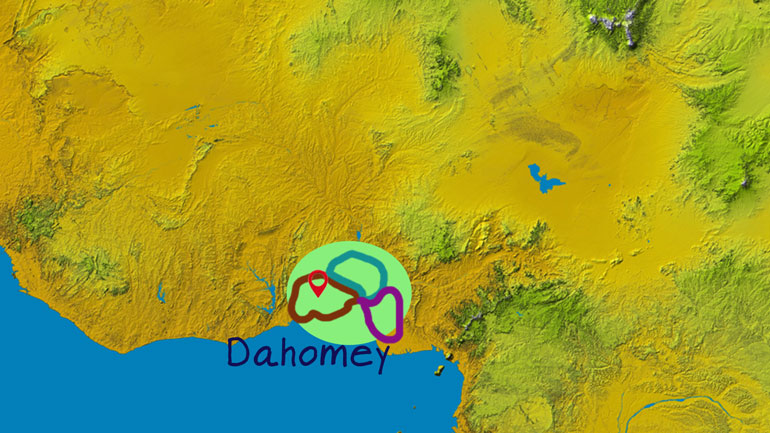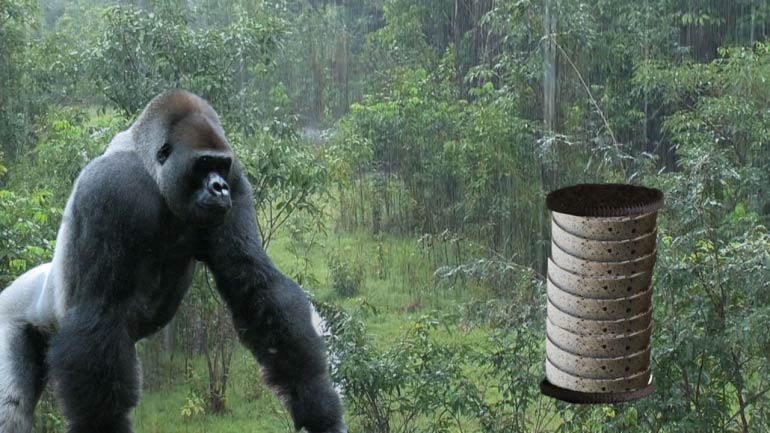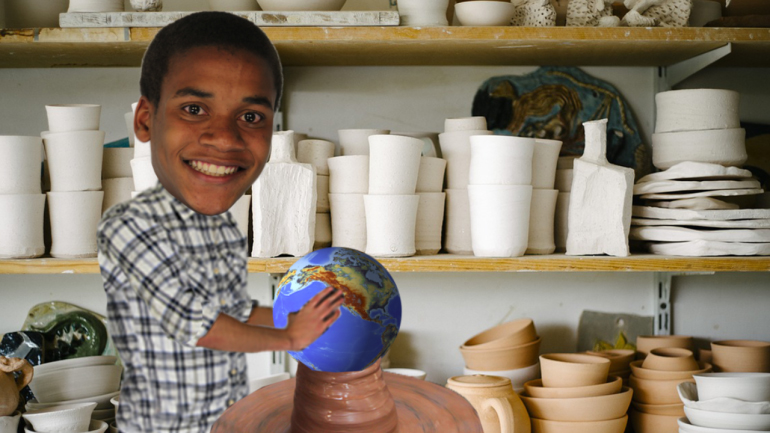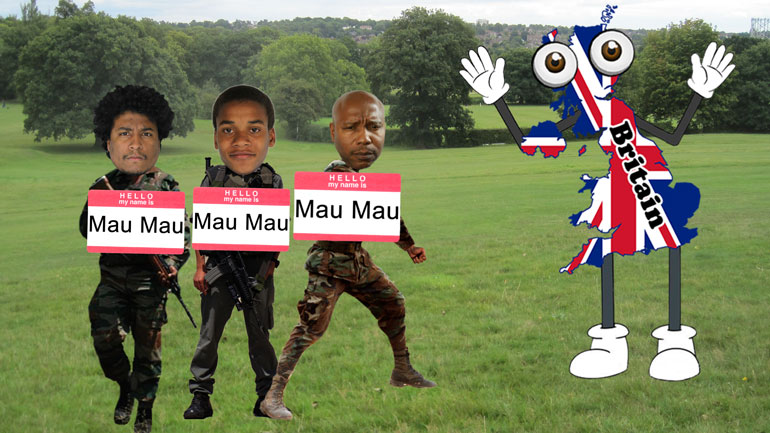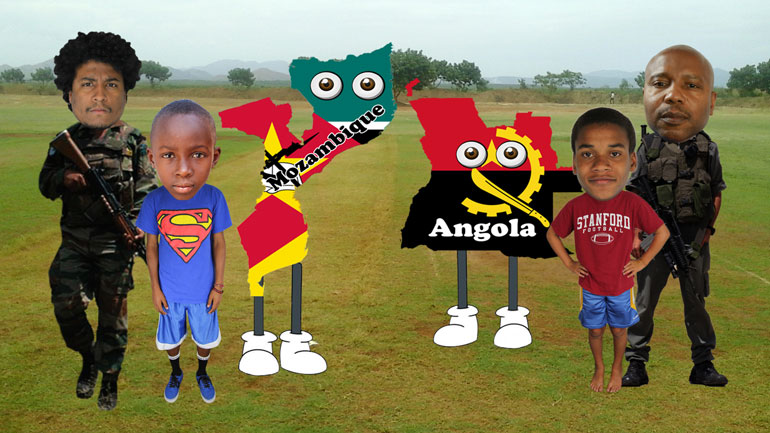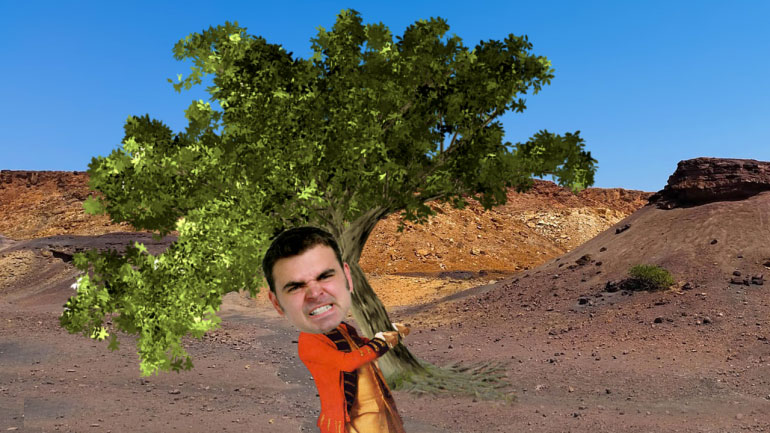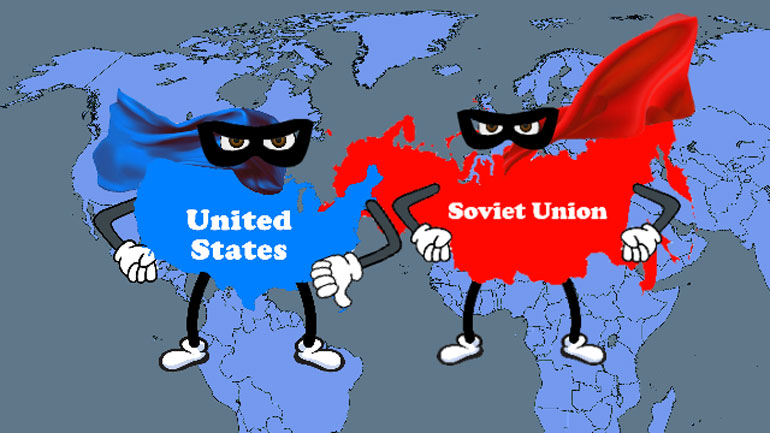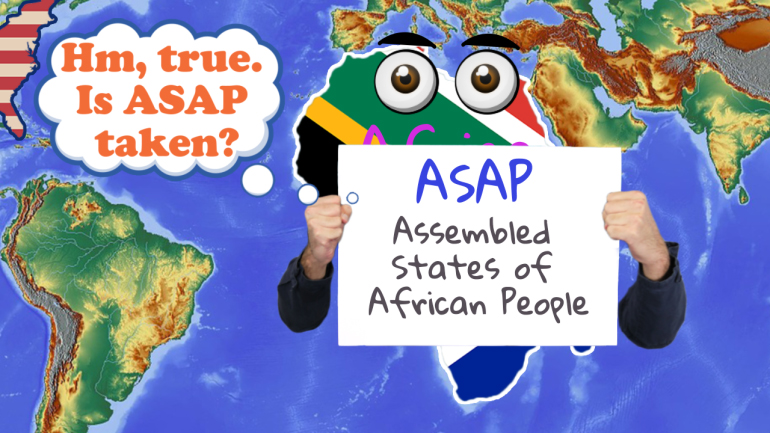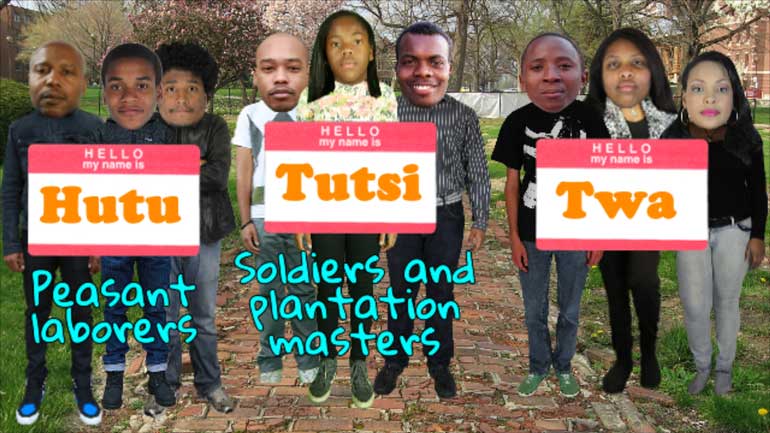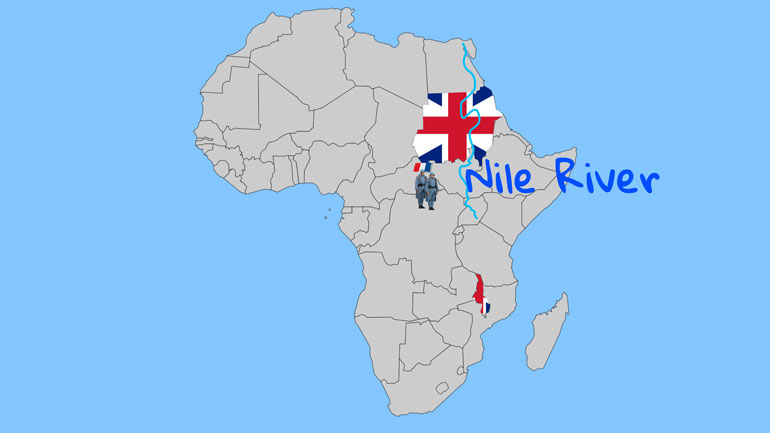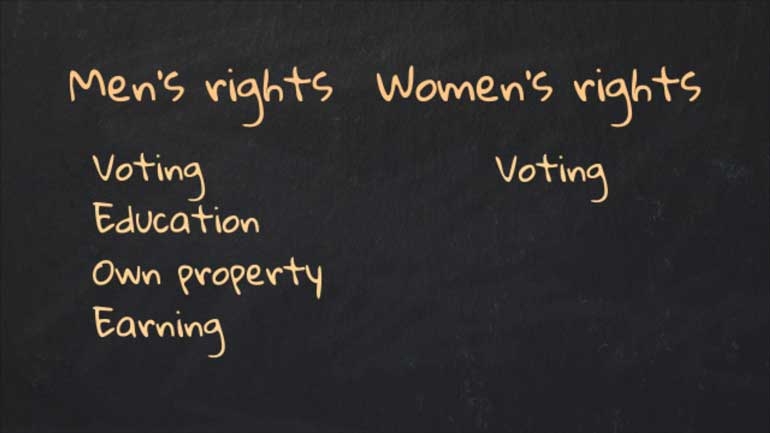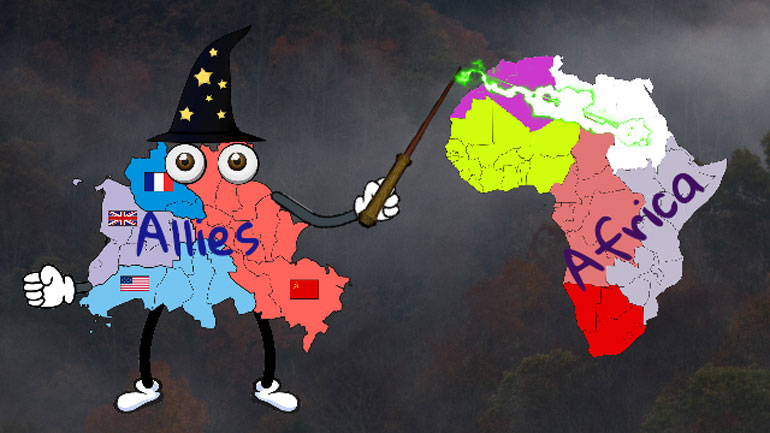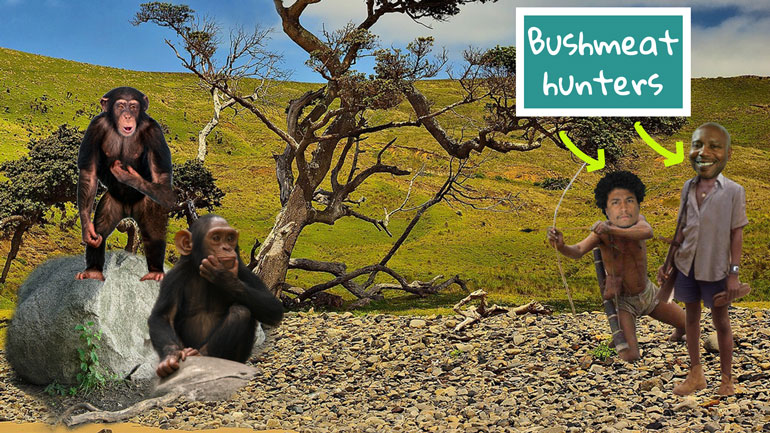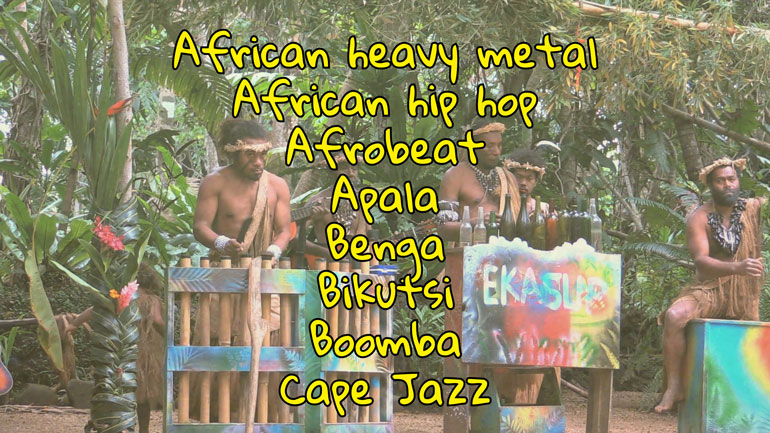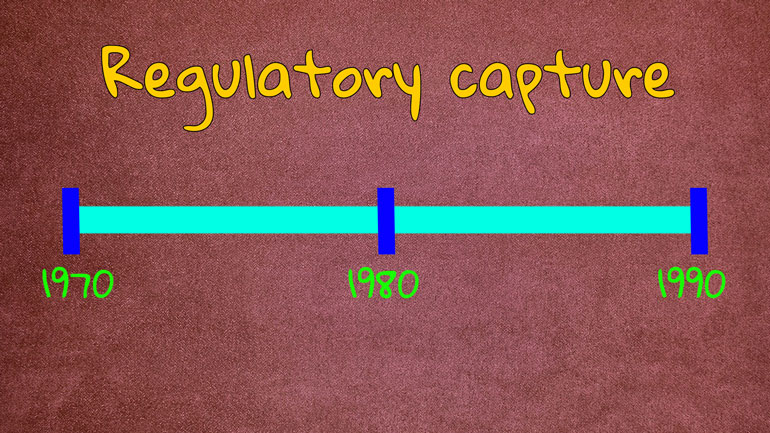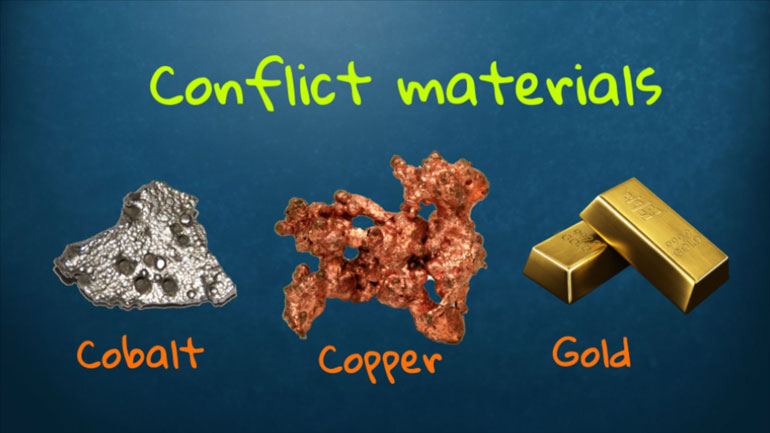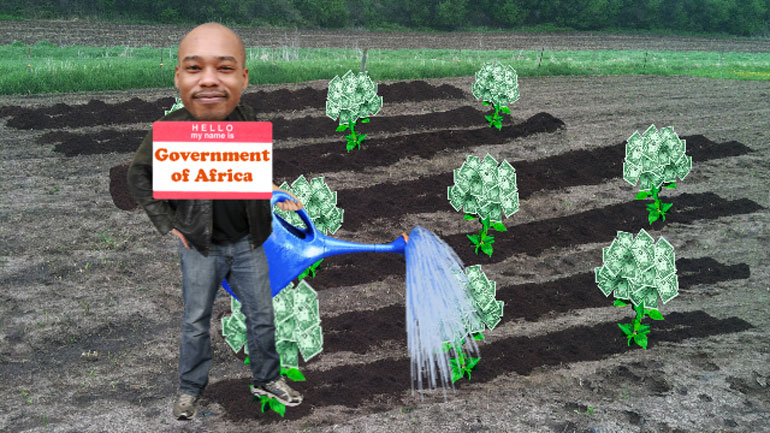ShmoopTube
Where Monty Python meets your 10th grade teacher.
Search Thousands of Shmoop Videos
World History Videos 95 videos
AP World History 1.2 Industrialization and Global Integration, c. 1750 to c. 1900. All of the following are innovations of the Industrial Revolutio...
AP World History 2.5 Industrialization and Global Integration, c. 1750 to c.1900. What was the relationship between abolitionist movements and wome...
AP World History 3.2 Industrialization and Global Integration, c. 1750 to c. 1900. The Sepoy Mutiny resulted in...what?
African History 7.7 HIV and AIDS 3 Views
Share It!
Description:
AIDS is definitely not a fun subject, but it is an important one. Check out this video for more info.
Transcript
- 00:04
Okay, time for a not-fun topic. [Teacher talking at the front of a classroom]
- 00:07
We'll give you a picture of a cute baby animal when we're done, but we gotta talk about it…
- 00:13
AIDS.
- 00:14
Yep, that awful pandemic that’s been wreaking havoc across the world, now for decades.
- 00:19
To say the symptoms are dire would be an understatement. [Doctor talking to a patient]
Full Transcript
- 00:22
It causes the number of cells in the body that fight other diseases to take a nosedive.
- 00:28
If your body was an army, AIDS is like a spy network that weakens all your defenses.
- 00:33
All scientific studies show that AIDS is caused by human immunodeficiency virus or HIV. [Scientist working in a lab]
- 00:39
It’s what’s called a retrovirus, and its favorite prey is macrophages,
- 00:45
or disease fighting cells.
- 00:48
HIV originated in Africa with the bushmeat practice of hunting monkeys for food. [Bushmeat hunter shoots monkey with a bow and arrow]
- 00:54
When bushmeat hunters kill and skin a monkey, they often contract that monkey's diseases
- 00:59
through blood-to-blood infection after monkey blood gets into their cuts.
- 01:04
One monkey disease, called simian immunodefiency virus, appears to have infected humans and
- 01:10
mutated into HIV on at least three different occasions since 1910.
- 01:15
And that's three more occasions than is preferable… [3 sick people in hospital beds]
- 01:18
And in other awful news, the virus wasn't noticed for seventy years, mostly because
- 01:23
it was only popping up in Cameroon and Congo.
- 01:26
There, administrators chalked it up as a form of syphilis, another sexually transmitted
- 01:32
disease.
- 01:33
This was one of those very rare times that declaring a disease as syphilis was actually [Upset looking patient in a hospital bed]
- 01:37
wishful thinking.
- 01:39
As migrant labor increased after colonialism, lots of guys from these regions started traveling
- 01:44
around the world.
- 01:45
And when these dudes get around, they tend to get around.
- 01:49
Many ended up sleeping with women, men, or some of both.
- 01:52
So in the 1970s, HIV spread across Africa, and then the world. [HIV virus covers Africa on the map, and then the rest of the world]
- 01:56
Things got even worse when blood banks and medical equipment outside Central Africa were
- 02:00
infected with the virus.
- 02:02
By the time HIV was understood, it was already a global pandemic that had infected millions.
- 02:08
HIV spreads through oral, anal, and vaginal sex, not to mention blood transfusions, unsanitary
- 02:14
medical equipment, and breast milk.
- 02:17
And because the world is full of idiots, some idiots in the 1980s were quick to label it [Man with a Dunce cap on holding a stamp]
- 02:21
a homosexual disease.
- 02:23
Since homosexuals were discriminated against, response to the virus was slow.
- 02:28
But the truth is that the virus affects men and women of all sexual orientations as well
- 02:32
as millions of children.
- 02:34
The good news is that HIV can now be managed by medical technology. [Medical person talking to a patient and looking positive]
- 02:38
Condoms, dental dams, and some other barrier methods drastically reduce the spread of HIV.
- 02:43
And antiviral medication can suppress HIV, allowing infected people to live rich and
- 02:49
full lives.
- 02:50
But HIV is still a big problem in Africa for several reasons.
- 02:53
First, access to contraception and sex ed is kinda hard to come by.
- 02:58
This is made worse because many organizations refuse to lift a finger to end HIV. [Arm with organization written on it flicks person away]
- 03:04
Catholic charities, for example, often refuse to provide accurate sex ed or to distribute condoms.
- 03:11
And then there’s some other seriously sketchy stuff, like what went down in South Africa
- 03:14
in the 80s.
- 03:15
Yep, the 80s again.
- 03:17
The haircuts weren’t the only things that sucked.
- 03:19
Anyway, in 80s South Africa, communist agents circulated a theory that HIV was created by
- 03:26
the CIA as a weapon against Africans.
- 03:29
They convinced people that safe sex and antivirals did diddly-squat to fight the virus. [Man kicks medicine into a bin]
- 03:34
Then in the 1990s, the South African government also refused to accept that HIV was the cause
- 03:39
of AIDS.
- 03:40
So they promoted alternative medicines that just didn’t work.
- 03:44
Another big issue is that until recently only one company held the patent for HIV antivirals, [Scientist holds up patent certificate]
- 03:49
and this company sold most of their stock as a baldness treatment in Europe, which left
- 03:54
few meds for Africans.
- 03:56
But times are changing, the patent has expired, and sex-ed and antivirals are making headway
- 04:01
in the war on AIDS.
- 04:03
Hm…bald Europeans vs. dead Africans?
- 04:06
Seems like that should’ve been and easier choice. [Scales with 'Bald European' label on one side and 'Dead Africans' label on the other]
- 04:08
And seeing as we've made it to the end…
- 04:10
Permission granted to spend the next hour looking at more baby animal pictures. [Students look at picture of duckling]
Related Videos
Home to the biggest river, the biggest desert, and some of the biggest land animals in the world, Africa is so much more than what most media would...
Didn't get enough of the French Revolution the first time around? We've gotcha covered. Check out our second French Revolution video, preferably wi...
Famine is one of the biggest problems in Africa. Find out why it's such a complex problem, and what's being done to combat it.




